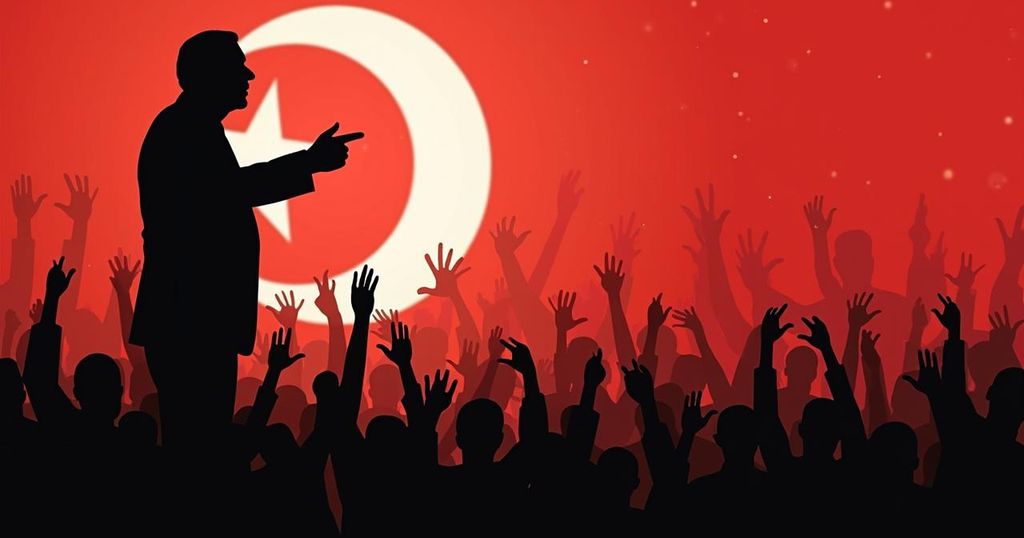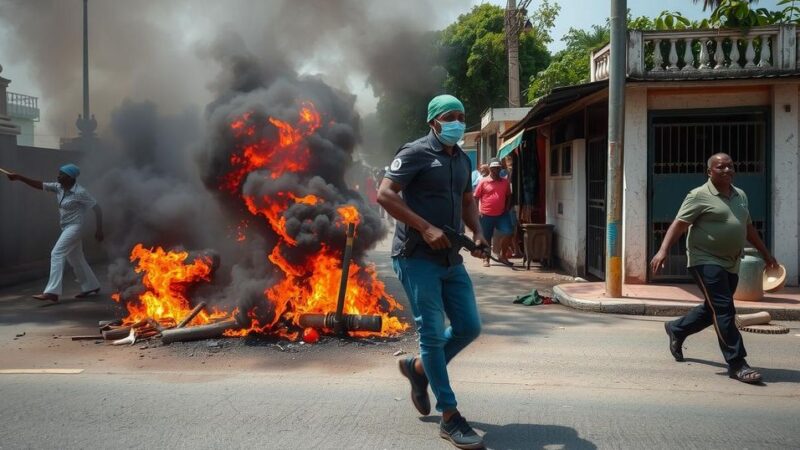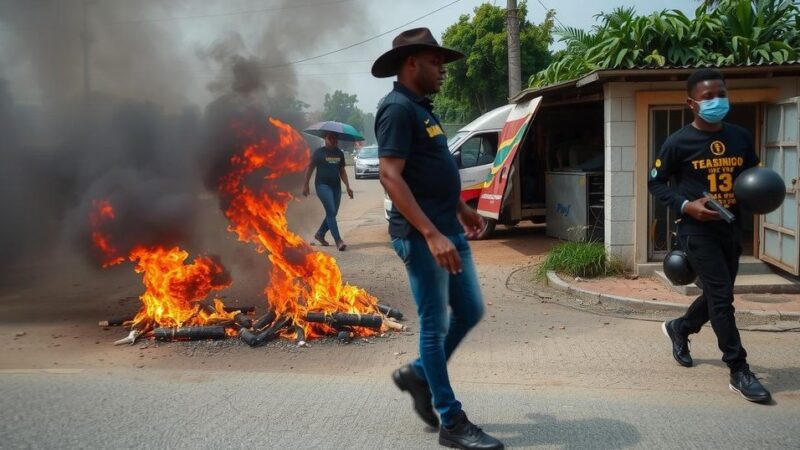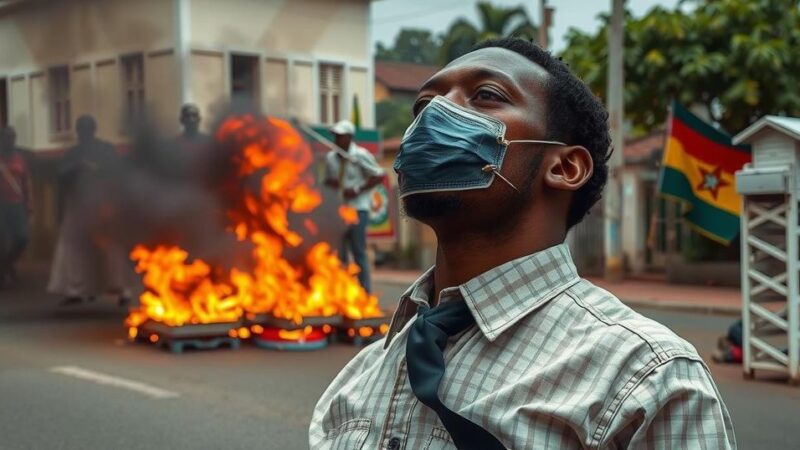Tunisia’s President Kais Saied is seeking re-election amid significant political suppression. His main challenger has been imprisoned, leaving Saied with little opposition. Critics argue that Saied’s presidency has reversed democratic gains made since the Arab Spring, as he consolidates power and worsens human rights conditions. The socio-economic crises, along with the rising migration out of Tunisia, further complicate the electoral environment, leading to low expected voter turnout.
Kais Saied, the President of Tunisia, is poised to seek re-election in an electoral environment that appears heavily lopsided. The election, scheduled for Sunday, is likely to favor Saied, who has distanced himself from significant political opposition. Out of a pool of prospective challengers, the Tunisian electoral commission has only sanctioned two candidates on the ballot, which includes Ayachi Zammel, who unexpectedly received a 12-year prison sentence for document forgery just days prior to the election. Tunisia, the birthplace of the Arab Spring, was once hailed as a model of democratic progress in the Arab world. However, under Saied’s leadership, many of the democratic gains appear compromised. Since assuming the presidency in 2019 with a clear mandate, Saied has suspended parliament, rewritten the constitution, and consolidated executive power significantly. As this presidential election marks Tunisia’s third since the ousting of Zine al-Abidine Ben Ali in 2011, experts, such as Sarah Yerkes of the Carnegie Endowment for International Peace, assert that the current election is fundamentally Saied-centric, with Ms. Yerkes noting that he “manipulated the political and legal situation to such an extent that there is no contest – he is the only viable candidate.” The political landscape leading up to this election has been characterized by the arrest and prosecution of opposition members, with the largest opposition party, Ennahda, reporting widespread detentions among its senior officials. An Amnesty International representative condemned the environment stating, “Tunisian authorities are waging a clear pre-election assault on the pillars of human rights.” While Saied was initially celebrated for his focus on economic rejuvenation and anti-corruption, his grip on power has transitioned into actions that critics describe as autocratic. The unemployment rate stands at 16%, leading many young citizens to seek opportunities abroad, further exacerbating the migration crisis from Tunisia to Europe. In his rhetoric, Saied has attempted to assign blame for the country’s economic woes on migrants, deepening societal tensions, particularly against sub-Saharan Africans, amidst a backdrop of racist violence. Despite Saied’s public pledges to enhance vital services and curb corruption, his presidency continues to evoke apathy among voters, evidenced by a mere 11% turnout in the previous parliamentary elections. The anticipated low voter turnout in this upcoming election signals a growing disenchantment with the political process under Saied’s regime. Official results are expected three days following the election, yet the outcome seems predetermined in favor of Saied.
The context of Tunisia’s electoral landscape is critical to understanding the current situation in which President Kais Saied finds himself. Tunisia was a beacon of hope following the Arab Spring, marking a significant shift towards democracy after the 2011 revolution that overthrew decades of authoritarian rule by Zine al-Abidine Ben Ali. However, since Saied’s election in 2019, he has taken steps that seem to reverse this progress, consolidating power and sidelining opponents. His actions resonate with critiques of diminishing democratic freedoms, political suppression, and a deteriorating human rights situation. Furthermore, the rising economic pressures and high unemployment rates have made young Tunisians particularly disillusioned with the political establishment, fostering a climate where many seek to emigrate, further accentuating regional challenges.
In summary, the upcoming presidential election in Tunisia showcases an alarming regression in democratic principles under President Kais Saied. With only one legitimate challenger remaining after a campaign fraught with arrests of opposition figures and no active public discourse, Saied’s re-election bids appear to undermine the very democratic values that Tunisia aspired to uphold post-Arab Spring. The population’s growing disenchantment, compounded with economic struggles, raises significant concerns regarding the future of governance and civil liberties in Tunisia.
Original Source: www.bbc.com







